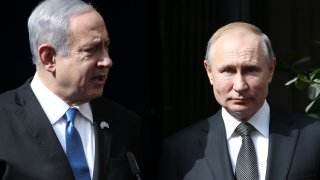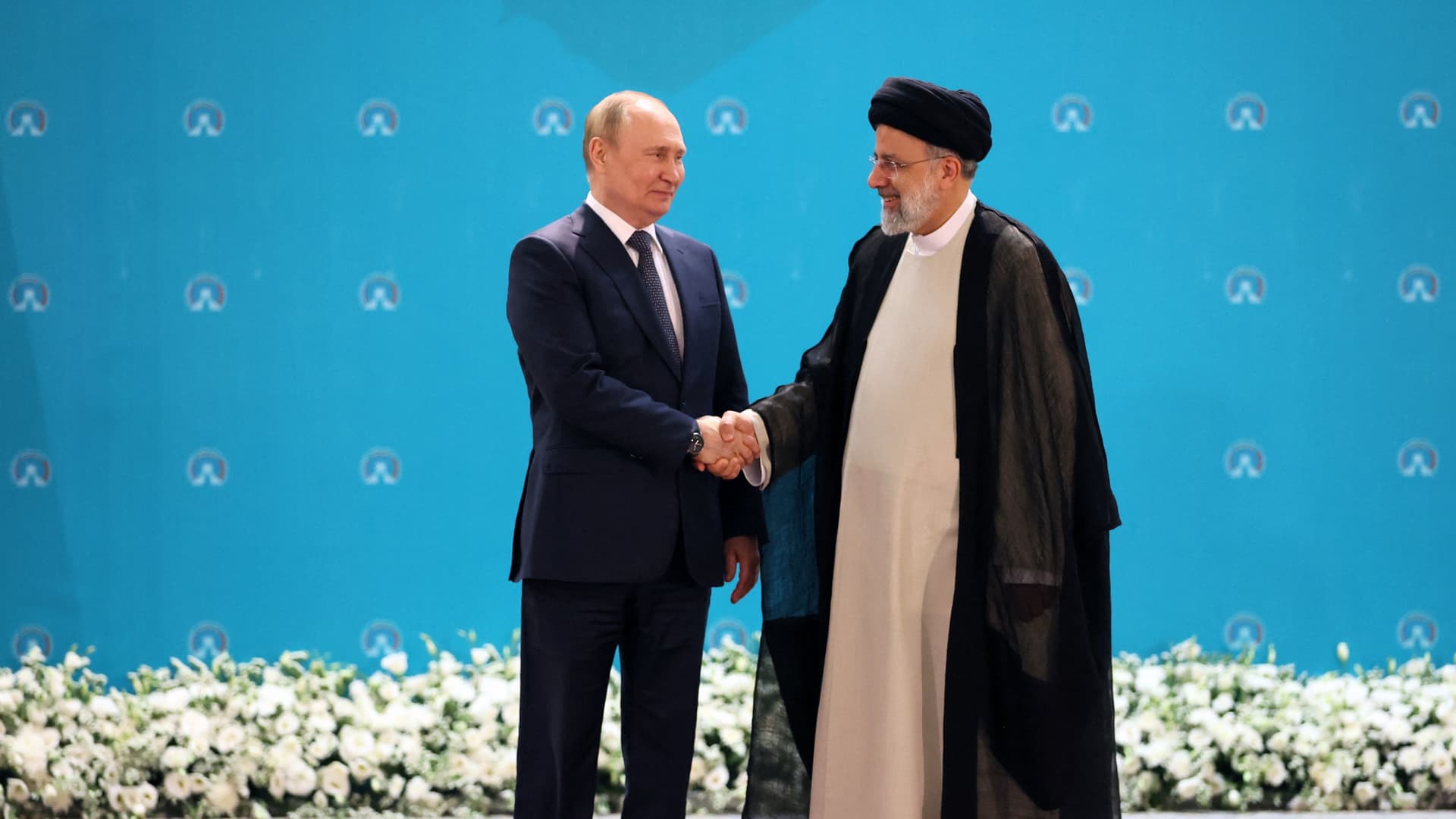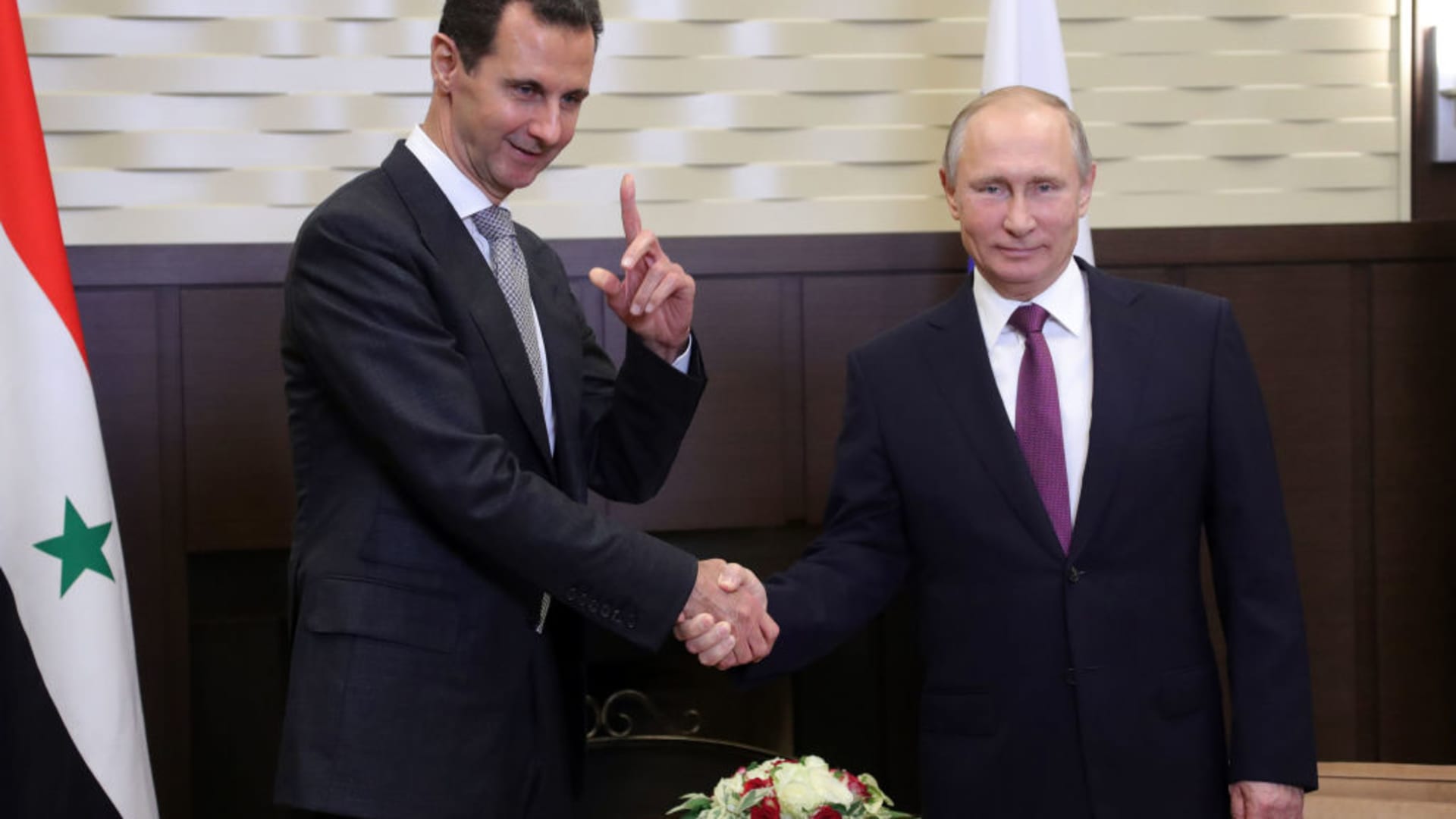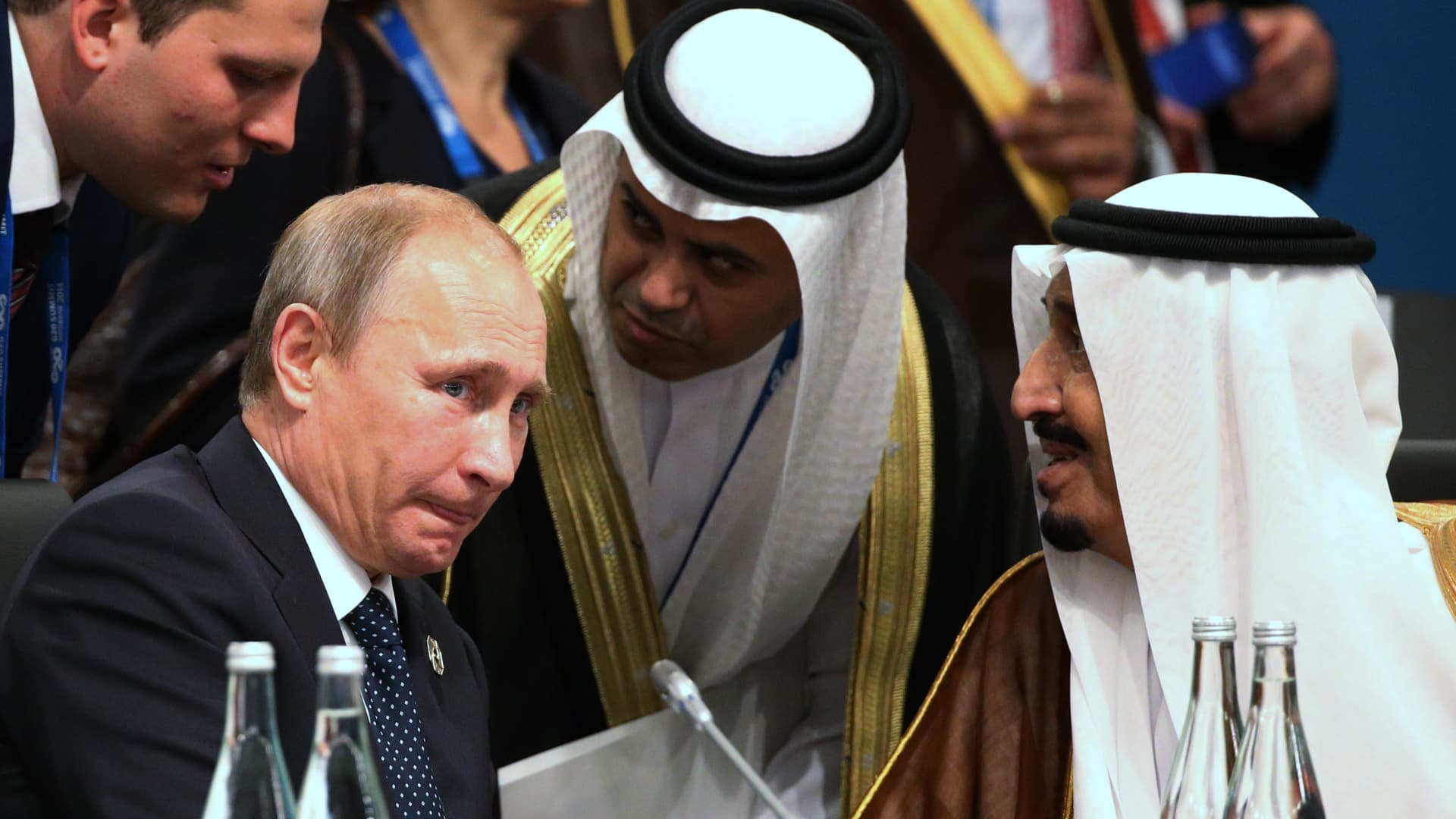
- When the Israel-Hamas war started a month ago, Russia was conspicuously measured in its immediate response.
- Russia's sober response was seen to be caused by the Kremlin weighing up its competing and conflicting vested interests in the Middle East.
- Russia has always enjoyed constructive relations with Israel.
- Russian President Vladimir Putin and Israel's Premier Benjamin Netanyahu have enjoyed a close relationship.
When the Israel-Hamas war started a month ago, Russia was conspicuously measured in its immediate response to the conflict, issuing cautious statements calling for cool heads and a cease-fire.
As Israel's assault on the Hamas-governed Gaza Strip has intensified, with over 10,000 Palestinians believed to have now died in the heavily-bombarded enclave, Russia has increasingly abandoned its more neutral stance and is becoming openly critical and hostile toward Israel.
Russia's initially sober response to the eruption of violence was seen to be a result of the Kremlin carefully weighing up its competing and conflicting interests in the Middle East.
Russia has always enjoyed constructive relations with Israel, with Russian President Vladimir Putin and Israel's Premier Benjamin Netanyahu enjoying a close relationship and vowing to deepen Israeli-Russian ties.

In recent years, however, Russia has become extremely close with Israel's arch-enemy Iran and has become even more reliant on Tehran since its invasion of Ukraine in 2022, relying on the country (among other rogue states) for weapons, predominantly drones, for use in the war.
Money Report
Against this backdrop, when the Iran-backed militant group Hamas attacked Israel on Oct.7, killing some 1,400 people and seizing over 240 hostages, Russia was put in an awkward position, not wanting to either overtly criticize Hamas, or defend Israel.
As time has gone on, however, Russia has become more critical of Israel's military action, particularly as it starts to step on its own toes — namely, its interests and alliances — in the region, such as the launching of strikes on Russia's ally Syria, a country in which Moscow has military bases and whose leadership it has propped up.
Get a weekly recap of the latest San Francisco Bay Area housing news. >Sign up for NBC Bay Area’s Housing Deconstructed newsletter.

Russia "is now in the situation where it's harder and harder to maintain that kind of equipoise," according to political analyst, author and academic Mark Galeotti, noting that Russia had calculated that its relations with the likes of Iran and fellow oil producer Saudi Arabia were more strategically and economically valuable than its ties with Israel.
"When it comes down to it, if you think of who Russia really needs, it needs Iran, not least as a continued source of military materiel, but it also needs Saudi [Arabia] because the two of them together can to a large extent dominate oil pricing globally. In that context, it's having to sacrifice Israel."
Russia turns against Israel
Russia's stance has gradually but dramatically shifted in recent weeks as it has become clear that the conflict is impacting its military and geopolitical interests.
As Israel launched airstrikes on several military bases in Syria in October in response to a series of rocket attacks directed toward Israel, Russia's Foreign Ministry said the strike violated Syria's "sovereignty and international law." Later in the month, Russian Foreign Affairs Minister Sergei Lavrov said the strikes were "unacceptable."

Around the same time as Lavrov's comments, Russia turned the screws further on Israel by receiving a Hamas delegation in Moscow in late October to have talks on hostages being held by the group.
In some of the most critical comments yet, Russian Foreign Minister Sergei Lavrov said on Oct.28 that Israel's bombardment of Gaza was against international law and risked creating a catastrophe "for many decades, if not centuries." The comments were broadly echoed by Russia's Ambassador to the UN Vasily Nebenzya, who stated on Nov.2 that Israel, being an "occupying state," did not have the right to self-defense under international law.
Putin has also weighed in, telling senior government and security officials that he deplored the humanitarian crisis in Gaza.
In a televised address, Putin said on Oct. 30 that "there is no justification for the terrible events taking place in Gaza now, where hundreds of thousands of innocent people are being killed indiscriminately, without having anywhere to flee or hide from the bombing."
"When you see blood-stained children, dead children, the suffering of women and old people, when you see medics killed, of course, it makes you clench your fists as tears well in your eyes. There is no other way to put it," he added. Putin also looked to tie the conflict in Gaza to the West, saying it stood to benefit from further instability in the Middle East.

"Russia's stance towards Israel has already become markedly more critical," Tatiana Stanovaya, senior fellow at the Carnegie Russia Eurasia Center and the founder of analysis firm R.Politik, said in her Weekly Digest analyzing Russian news.
Even if Putin has refrained from direct attacks on Israel in public, Stanovaya said, she noted that Putin "views the country as part of an American policy aimed at destabilisation and sowing chaos."
"Moscow increasingly sees Tel Aviv as aligning with Washington's sphere of influence — an assessment that inherently marginalises the importance of Israel to the Kremlin by tying it to Russia's broader geopolitical contest with America. By implication, there will be less incentive for the Kremlin to maintain and invest in a balanced policy towards Tel Aviv, as it had done previously," she noted.
Relations with Israel were deteriorating before the current conflict, to be fair, with Russia's invasion of Ukraine putting Western-backed Israel in a tricky position.
Israel was pressured to condemn the invasion and impose sanctions, along with Western nations, on Russia. It resisted, refusing to impose sanctions and giving Ukraine humanitarian rather than military aid, unlike other allies. Still, its ambiguous position seemed to annoy both Russia and the West alike.

Galeotti noted that Russia was likely calculating that, in any case, its relationship with Israel could change if there's a change of leadership, with Israeli PM Netanyahu increasingly unpopular.
"I think there's also the calculation that actually Netanyahu's days in power may well be numbered and a new government might well actually be much more Russia skeptical," he said.
"Russia would love to to have its cake and eat it but when it comes down to it, if it has to pick sides, it has to be with an eye to Iran and Saudi Arabia."






